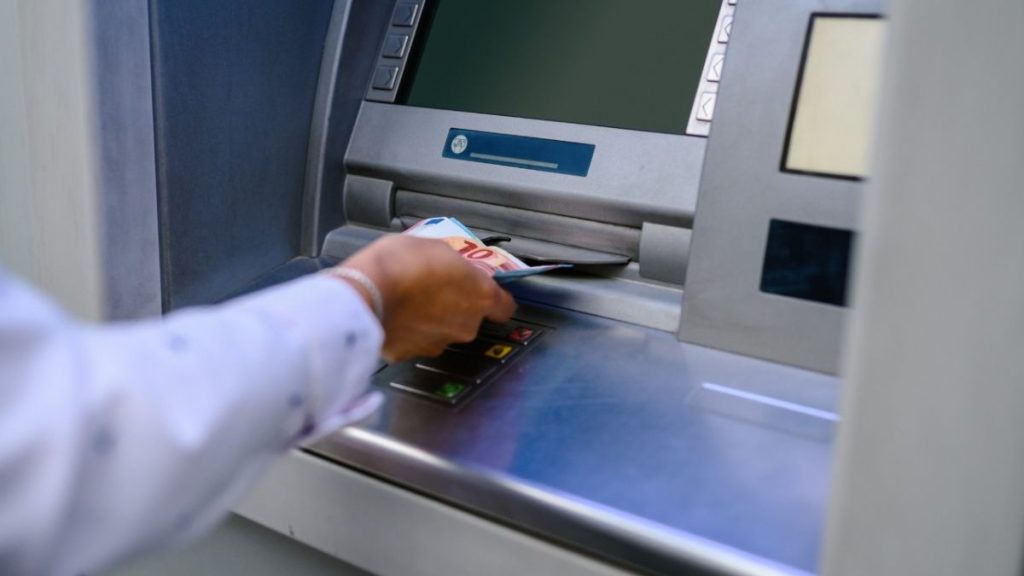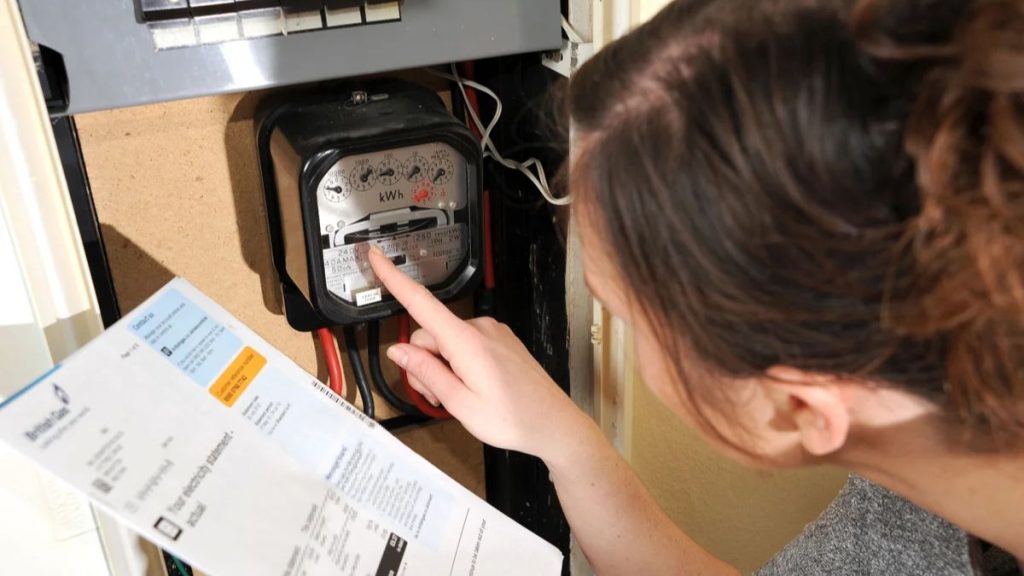Starting 29 September 2025, UK banks will implement new withdrawal limits for customers aged 65 and above, marking one of the most significant security-driven changes in recent years.
The move, supported by the Financial Conduct Authority (FCA) and the Department for Work and Pensions (DWP), aims to protect seniors from rising financial fraud while maintaining flexibility for everyday spending.
With fraud cases targeting pensioners growing each year, banks say these limits are a vital safeguard to prevent older customers from losing large sums to scams or unauthorised withdrawals.
What Are the New Withdrawal Limits?

Under the new system, each bank will set its own specific limits, but most have aligned within a similar range to balance protection with convenience.
| Withdrawal Type | Typical Daily Limit | Typical Weekly Limit |
|---|---|---|
| ATM withdrawals | £300 – £500 | £1,500 – £2,500 |
| Over-the-counter withdrawals | £300 – £500 per day | £1,500 – £2,500 per week |
These limits apply to cash withdrawals at ATMs and in-branch transactions. For larger withdrawals, customers will need prior authorisation from their bank — either in person or online.
Banks confirm that the new limits will not affect deposits, direct debits, or digital transfers.
Why Banks Are Introducing These Rules
The UK has experienced a sharp rise in scams and financial fraud targeting elderly citizens.
Criminals often manipulate older individuals through phone calls, emails, or doorstep scams, convincing them to withdraw large amounts of cash or share sensitive information.
By capping daily and weekly withdrawals, banks hope to:
- Reduce the impact of scams by limiting how much can be stolen in one go.
- Encourage safer banking behaviour through online and card-based payments.
- Give banks time to detect and block suspicious transactions.
According to the FCA, over 40% of banking fraud victims in 2024 were aged 60 and above, prompting calls for stronger protective measures.
How These Limits Affect Daily Banking
For many seniors, cash is still an essential part of daily life — from paying for groceries to giving pocket money to grandchildren.
The new limits mean older customers will need to plan withdrawals more carefully to ensure they have enough for essential purchases without exceeding caps.
Practical Adjustments for Seniors
- Use contactless cards or debit payments for groceries and utilities.
- Schedule regular payments (such as bills or subscriptions) via direct debit or standing order.
- Plan large expenses (such as home repairs or travel) in advance and request temporary withdrawal increases.
- Consider smaller, more frequent cash withdrawals to stay within limits.
Banks stress that the policy is not about restricting access, but rather about enhancing safety for older account holders.
Changes to Branch Withdrawals
Customers withdrawing cash in person will also be subject to the new rules.
Anyone who needs to withdraw more than the daily limit must request authorisation beforehand.
This can usually be done:
- In-branch, by speaking to a bank representative, or
- Online, via a secure customer portal.
Bank staff have been trained to assist older customers and spot potential red flags for fraud.
They will also guide customers through safe withdrawal practices and help with setting up alternative payment options.
ATM Usage and Digital Payment Options
ATMs remain the most common cash access point for pensioners, but these machines will now automatically enforce the new limits.
To avoid inconvenience, customers are advised to:
- Withdraw smaller amounts more frequently.
- Use multiple ATMs cautiously if necessary (some banks may still enforce account-wide limits).
- Explore digital alternatives, such as contactless cards, Apple Pay, or Google Pay, which are protected by PIN and biometric security.
Tip: Contactless payments under £100 are processed instantly and securely, making them a safe substitute for cash transactions.
Impact on Pension Payments
For pensioners who rely on monthly state pension payments, these limits will not affect deposits — only withdrawals.
Your pension will still be paid in full to your account as usual.
However, you may need to withdraw smaller portions gradually to manage cash use effectively.
Expert Recommendations
- Set up direct debits for regular bills (utilities, rent, council tax).
- Keep small emergency funds at home, stored securely.
- Avoid withdrawing large sums at once, which can increase risk of theft or scams.
Banks also encourage seniors to speak with branch advisers to personalise their withdrawal preferences within the new security framework.
Online and Mobile Banking: A Safe Alternative
Digital banking offers a reliable way for seniors to access their money without physical limits.
Through secure websites or mobile apps, customers can transfer funds, monitor accounts, and schedule payments with ease.
Benefits of Online Banking
- No withdrawal restrictions for transfers or digital payments.
- Instant transaction alerts for security monitoring.
- 24/7 access to accounts without visiting branches.
- Ability to spot and report suspicious activity quickly.
Banks such as Lloyds, Barclays, and HSBC have also introduced digital literacy workshops to help seniors gain confidence in using mobile and online platforms.
How Banks Are Supporting Vulnerable Customers
To ease the transition, banks have rolled out dedicated support programmes for senior customers, including:
- Helplines for customers aged 65+ to handle withdrawal queries.
- In-branch advisors offering one-on-one support.
- Educational guides on recognising scams and staying secure online.
- Community outreach events for financial awareness.
These initiatives are designed to ensure that no senior feels left behind or confused by the new rules.
Preparing for the Change
With the 29 September 2025 deadline approaching, seniors and their families should start preparing early.
Key Steps to Take Now
- Check with your bank for your specific withdrawal limits.
- Review your spending habits and adjust for the new daily cap.
- Explore digital options like debit and contactless payments.
- Plan large withdrawals in advance (e.g., travel, medical costs).
- Discuss arrangements with trusted family members or advisors.
Planning ahead will help older customers avoid disruption and continue managing finances safely under the new system.
Potential Challenges for Seniors
While the new rules are well-intentioned, they may present some practical challenges:
- Accessing emergency funds beyond the daily cap.
- Adjusting to digital banking tools.
- Managing unexpected large expenses (home repairs, gifts, etc.).
Banks have committed to offering flexible solutions in such cases, including temporary withdrawal increases and family-assisted authorisations.
Government and Regulatory Support
The FCA and the UK government back the initiative as part of a national strategy to combat elder financial abuse.
Authorities have noted a steady increase in fraud incidents involving cash withdrawals, prompting banks to strengthen controls.
The government is also promoting digital inclusion programmes to ensure that older adults can confidently use online and mobile banking safely.
Tips for Safe and Independent Banking
To help older customers adapt smoothly to the new withdrawal rules, experts recommend these practical safety steps:
- Use debit or contactless payments for everyday purchases.
- Keep limited cash at home for emergencies.
- Never share your PIN or online banking credentials.
- Check statements regularly for unusual activity.
- Attend bank security workshops to learn about fraud prevention.
These habits not only ensure compliance with the new rules but also enhance personal financial safety.
Family Support and Involvement
Family members can play a crucial role in helping seniors navigate this change.
They can assist with:
- Setting up online banking accounts securely.
- Reviewing spending and planning withdrawals.
- Watching for signs of scams or fraud attempts.
- Accompanying elderly relatives to the bank if needed.
Pro Tip: Families should discuss establishing a trusted contact with the bank — a person who can be notified if unusual activity occurs.
FAQs
1. When do the new withdrawal limits come into effect?
The new limits for over-65s will take effect on 29 September 2025 across major UK banks.
2. What are the daily and weekly limits?
Most banks are setting daily limits of £300–£500 and weekly limits of £1,500–£2,500 for customers aged 65 and above.
3. Can I withdraw more if needed?
Yes, but you’ll need prior authorisation from your bank. You can request this in-branch or online.
4. Will this affect my pension or direct debits?
No. Pension deposits and regular direct debit payments are unaffected — the limits apply only to cash withdrawals.
5. How can seniors manage larger expenses under these rules?
Plan withdrawals in advance, use digital payments, or speak to bank staff about temporary withdrawal increases for verified needs.

















